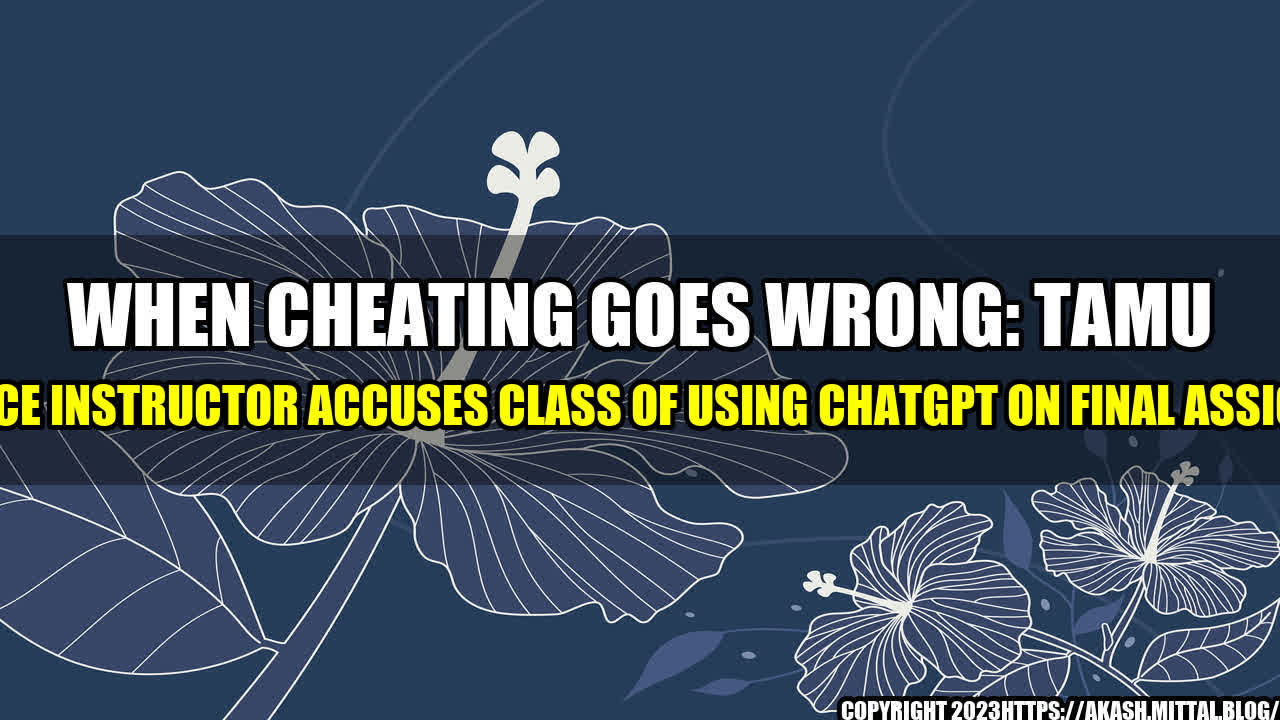The Incident
An instructor at TAMU Commerce recently accused an entire class of using an artificial intelligence tool called ChatGPT to complete their final assignments.
ChatGPT is an AI-based chatbot that can be trained to respond to specific prompts and can generate human-like text.
According to the instructor, the majority of the final assignments submitted by the class contained text that had been generated by ChatGPT, which would constitute a form of plagiarism and cheating.
The Consequences
The consequences of cheating can be severe, both academically and personally.
In this case, the instructor has not yet announced any specific consequences, but students found to be cheating could face a variety of disciplinary actions, ranging from failing the assignment or course to being expelled from the university.
Cheating also carries personal consequences, including damage to one's reputation and integrity. In addition, cheating can hinder the development of essential skills that are required in the workforce, such as critical thinking and problem-solving.
The Prevalence of Cheating
Cheating is not a new phenomenon, but it has become easier to do with advances in technology.
According to a survey conducted by the International Center for Academic Integrity, over 70 percent of students admit to cheating at least once during their academic careers.
Common forms of cheating include copying from others, plagiarism, and using technology to cheat, such as using an online service to complete an assignment or exam.

Curated by Team Akash.Mittal.Blog
Share on Twitter Share on LinkedIn